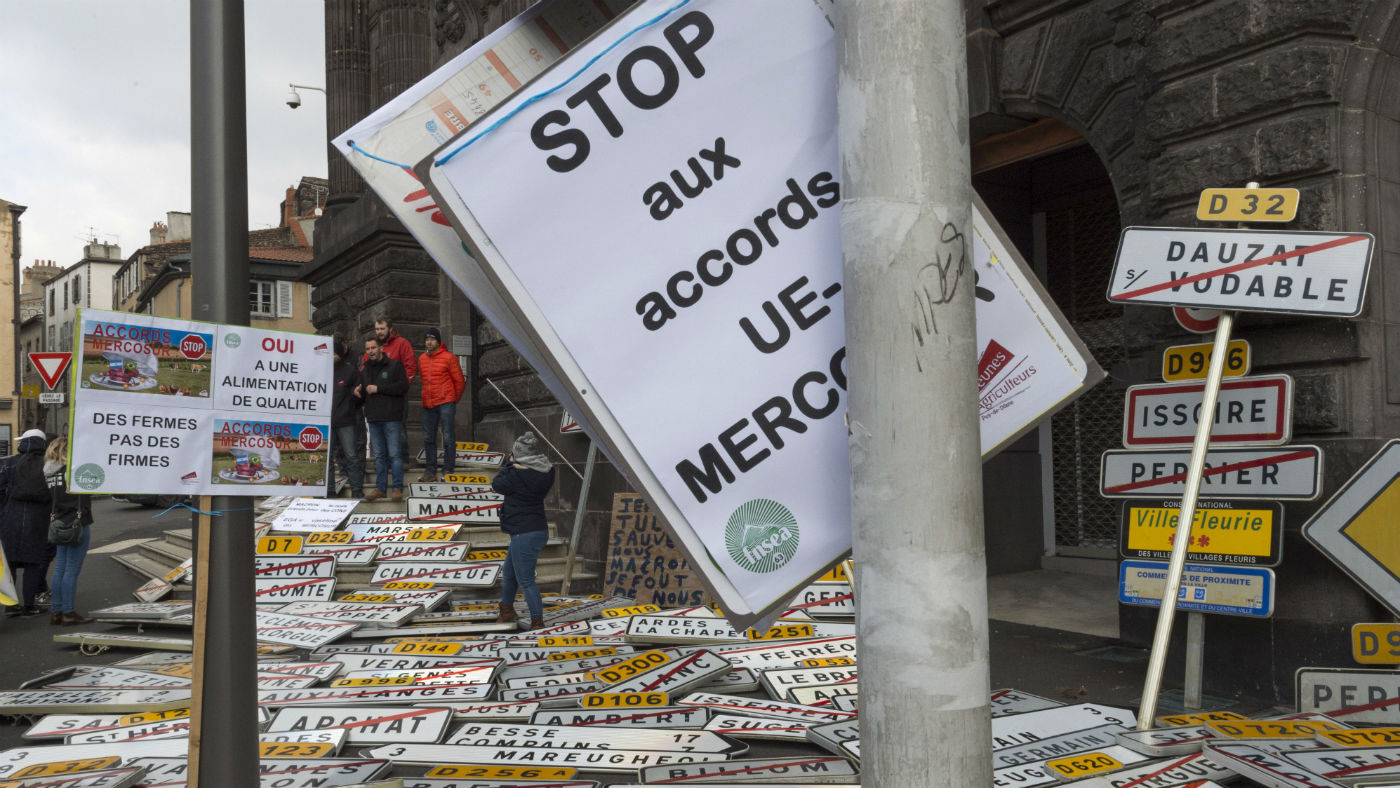Austria blocks EU trade deal with South America
MPs deal blow to agreement 20 years in the making by demanding a government veto

A free daily email with the biggest news stories of the day – and the best features from TheWeek.com
You are now subscribed
Your newsletter sign-up was successful
MPs in Austria have dealt a severe blow to the EU’s landmark trade agreement with South America, by demanding a veto on any deal.
The South American trade bloc of Mercosur includes four of the region’s biggest economies - Brazil, Argentina, Uruguay and Paraguay. A fifth member, Venezuela, is currently suspended due to the economic turmoil gripping the country.
The EU is already the bloc’s biggest trade partner, accounting last year for 20.1% of its trade in goods such as food, drink, farm products and tobacco.
The Week
Escape your echo chamber. Get the facts behind the news, plus analysis from multiple perspectives.

Sign up for The Week's Free Newsletters
From our morning news briefing to a weekly Good News Newsletter, get the best of The Week delivered directly to your inbox.
From our morning news briefing to a weekly Good News Newsletter, get the best of The Week delivered directly to your inbox.
The draft agreement, which took 20 years to complete and has been described by the EU it as its biggest so far, would cover 780 million people, and “aims to remove trade barriers and promote high standards, with a commitment to sustainable management and conservation of forests and respect for labour rights”, says the BBC.
Yet despite the enormous effort that has already gone into the deal, its ratification by every EU government is far from certain.
DW reports the trade agreement, reached last June after almost a decade of negotiations, “was already in doubt due to concerns over fires in the Amazon rainforest and the politics of Brazilian President Jair Bolsonaro”.
France and Ireland have warned they will reject the deal if Brazil does not do more to curb fires in the Amazon rainforest.
A free daily email with the biggest news stories of the day – and the best features from TheWeek.com
Now, all but one of Austria’s main parties have rejected the deal in a parliamentary sub-committee, with Jorg Leichtfried of the centre-left SPO hailing the vote as a “great success for consumers, the environment and animal welfare as well as human rights”, while warning that it would have been bad for climate protection and labour rights in South America.
The Guardian says “concerns about adverse effects on the European product standards and farming sector also played a part in the debate in the Austrian parliament”.
Importers of EU goods in the Mercosur zone currently have to pay tariffs of 35% on cars, 14-20% on machinery and 27% on wine, which would be gradually phased out if a trade deal came to pass.
However, DW says the cross-party agreement to vote against the trade deal “may also be a way of politicians seeking support from voters, as elections are coming up”.
According to the Krone Zeitung, 78% of Austrians wanted the pact to be thrown out.
-
 Political cartoons for February 21
Political cartoons for February 21Cartoons Saturday’s political cartoons include consequences, secrets, and more
-
 Crisis in Cuba: a ‘golden opportunity’ for Washington?
Crisis in Cuba: a ‘golden opportunity’ for Washington?Talking Point The Trump administration is applying the pressure, and with Latin America swinging to the right, Havana is becoming more ‘politically isolated’
-
 5 thoroughly redacted cartoons about Pam Bondi protecting predators
5 thoroughly redacted cartoons about Pam Bondi protecting predatorsCartoons Artists take on the real victim, types of protection, and more
-
 Epstein files topple law CEO, roil UK government
Epstein files topple law CEO, roil UK governmentSpeed Read Peter Mandelson, Britain’s former ambassador to the US, is caught up in the scandal
-
 Iran and US prepare to meet after skirmishes
Iran and US prepare to meet after skirmishesSpeed Read The incident comes amid heightened tensions in the Middle East
-
 EU and India clinch trade pact amid US tariff war
EU and India clinch trade pact amid US tariff warSpeed Read The agreement will slash tariffs on most goods over the next decade
-
 Israel retrieves final hostage’s body from Gaza
Israel retrieves final hostage’s body from GazaSpeed Read The 24-year-old police officer was killed during the initial Hamas attack
-
 China’s Xi targets top general in growing purge
China’s Xi targets top general in growing purgeSpeed Read Zhang Youxia is being investigated over ‘grave violations’ of the law
-
 Panama and Canada are negotiating over a crucial copper mine
Panama and Canada are negotiating over a crucial copper mineIn the Spotlight Panama is set to make a final decision on the mine this summer
-
 Why Greenland’s natural resources are nearly impossible to mine
Why Greenland’s natural resources are nearly impossible to mineThe Explainer The country’s natural landscape makes the task extremely difficult
-
 Iran cuts internet as protests escalate
Iran cuts internet as protests escalateSpeed Reada Government buildings across the country have been set on fire